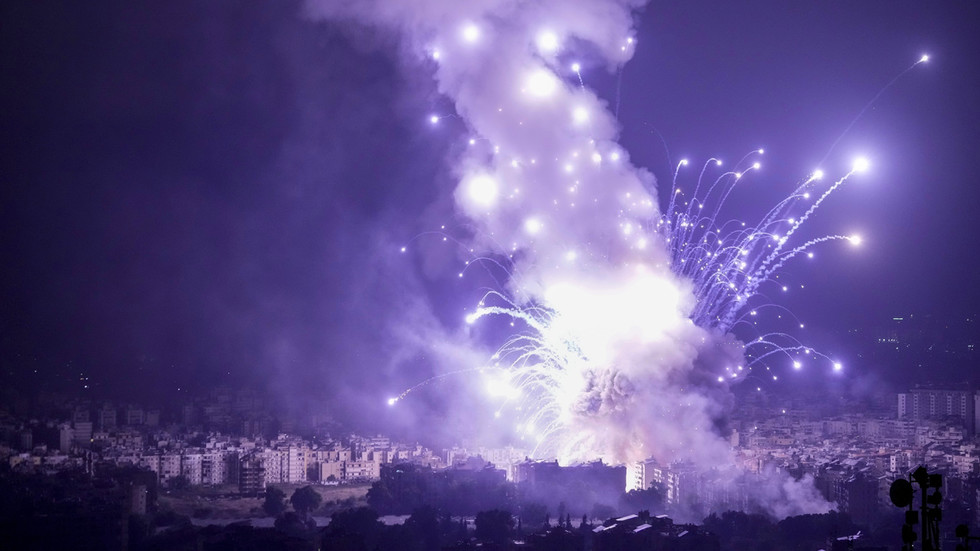In a recent video address, Israeli Prime Minister Benjamin Netanyahu urged the Lebanese populace to rise against Hezbollah, emphasizing the dire consequences of not doing so. He claimed the militant group has been responsible for plunging Lebanon into chaos and war through their aggressive actions towards Israel, which he stated have included indiscriminate attacks on civilians. Netanyahu asserted that unless the Lebanese people act, they risk experiencing destruction akin to that which is currently observed in Gaza amid the ongoing Israeli military operations. His appeal comes amid an escalation of the conflict, with the Israel Defense Forces (IDF) increasing their cross-border offensive in Lebanon and claiming significant successes against Hezbollah’s leadership.
Netanyahu’s comments gained weight following a reported Israeli airstrike that killed Hassan Nasrallah, Hezbollah’s longstanding leader, in September. The Israeli military has also claimed responsibility for the deaths of two other senior Hezbollah figures who were believed to be potential successors to Nasrallah. In his message, Netanyahu highlighted the vulnerability of Hezbollah at this point, suggesting that it is significantly weakened compared to previous years. He urged the Lebanese population to seize this moment and act decisively, asserting that they are at a crucial juncture that could determine the fate of their nation.
The backdrop to Netanyahu’s call for rebellion is rooted in a broader military confrontation that has escalated since the onset of the conflict in Gaza, prompted by a violent incursion by Hamas militants which resulted in the deaths of over 1,100 Israelis and the taking of hostages. In retaliation, Israel launched extensive airstrikes and ground operations that have led to a humanitarian crisis in Gaza, with significant casualties reported. The destruction has cast a long shadow on the region, and Netanyahu warned that if Hezbollah is not dismantled, similar tragedies could unfold in Lebanon, exacerbating the suffering for civilians.
As Israel intensifies its military operations, the consequences have reverberated beyond its borders. Since the beginning of hostilities, Lebanon has reportedly witnessed over 2,000 fatalities as a result of Israeli attacks, reflecting the significant toll this conflict is exerting on the Lebanese community. Netanyahu’s remarks came amid ongoing Israeli airstrikes in Beirut, with reports of at least 26 bombings on that day alone. The increasing intensity of the conflict raises concerns about regional stability and sparks fears of a prolonged war that could engulf Lebanon similarly to Gaza.
Netanyahu’s pronouncements reflect a strategic posture aimed not only at weakening Hezbollah but also at shifting the onus of conflict resolution onto the Lebanese people. He painted a stark picture of a population at a crossroads, capable of either liberating their country from an oppressive militant group or facing the abyss of war that may replicate the devastation seen in Gaza. His rhetoric seeks to solidify Israeli public support for ongoing military efforts while also attempting to isolate Hezbollah politically within Lebanon itself.
As military operations continue to unfold, the call for Lebanese intervention against Hezbollah emphasizes the complexity of the regional conflicts intertwined in this struggle. With the humanitarian implications intensifying, both Israel and Lebanon face significant challenges in navigating the crisis. The growing death toll, particularly in Gaza, evokes global condemnation and concern over the humanitarian situation, raising critical questions about the efficacy of military solutions in achieving lasting peace and stability in the region.

